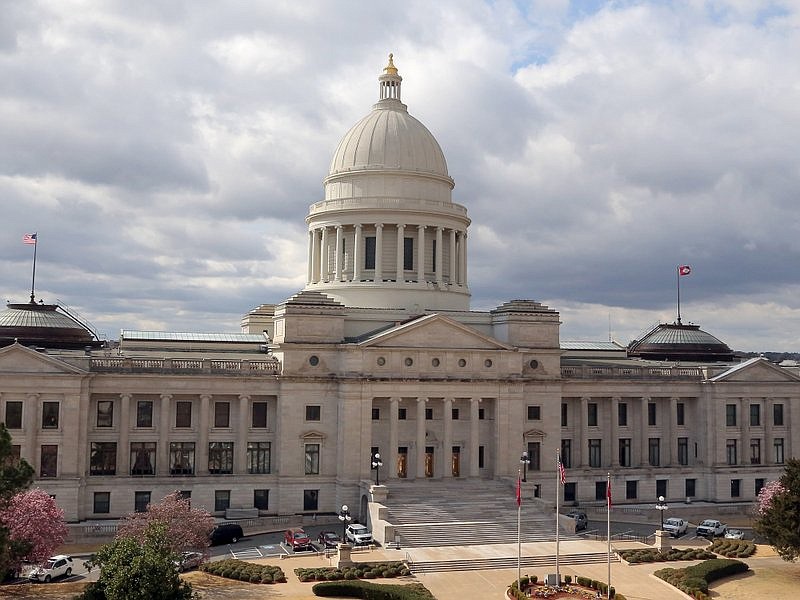A House committee advanced a bill Tuesday that would require written permission from parents before school employees could address students by their preferred pronoun or name.
House 1468, which passed committee last week, was referred back to the House Education Committee after its sponsor, Rep. Wayne Long, said the bill needed to be amended.
The committee passed the bill on a voice vote with Democrat representatives Denise Garner and Vivian Flowers dissenting.
The bill requires school officials address students by their name listed on their birth certificate and the pronouns consistent with a student's biological sex, unless given parental permission to do otherwise. The bill would not apply to derivative names, such as "Bob" for "Robert," according to Long.
Long said his amendment further clarifies school employees cannot be punished for not addressing a student by a preferred pronoun or name.
The bill would apply to public schools, open-enrollment charters and public colleges, and permission would only be required for a student who is "an unemancipated minor."
The House Education Committee also voted to concur with a Senate amendment Tuesday to restrict transgender people from using the bathroom of their choice at a public school. The Senate approved House Bill 1156 by Rep. Mary Bentley, R-Perryville Monday on a party-line vote.
The bill was amended in the Senate to clarify that students traveling on school-sponsored overnight trips must either share sleeping quarters with students of the same sex or be "provided single-occupancy sleeping quarters."
The bill has a requirement for schools to provide "a reasonable accommodation" for those unwilling to use a multi-occupancy restroom or changing areas designated for the individual's sex.
Afterward, Gov. Sarah Sanders spokeswoman Alexa Henning said Sanders "believes that schools are no place for the radical left's woke agenda" and will sign legislation that focuses on protecting and educating kids, not indoctrinating them.
Sen. Clarke Tucker, D-Little Rock, told senators, "You might believe that this bill protects kids who are not trans in school, but it doesn't."
"We've tried separate but equal in this country before and we know how that turned out," he said. "When are we going to stop castigating and marginalizing people just because they're different?"
Sarah Everett, policy director of the American Civil Liberties Union of Arkansas, told the Senate committee the bill would not withstand a legal challenge, as "multiple circuit courts of appeals" have said similar laws have violated federal sex discrimination statutes.
Sanders on Monday signed legislation making it easier to sue providers of gender-affirming care for children, a move that could effectively reinstate a blocked ban on such care. The new law, which won't take effect until summer, would allow anyone who received gender-affirming care as a minor to file a malpractice lawsuit against their doctor for up to 15 years after they turn 18.
The bill, by Sen. Gary Stubblefield, R-Branch, was approved by the Senate on Feb. 21 and the House on March 8.
Legal experts have said the change could close access to gender-affirming care for children by making it nearly impossible for providers to get malpractice insurance.
"Arkansas infamously passed the first law in the nation to try to ban gender affirming care for trans youth and after hearing extensive evidence, the courts have blocked that ban," Holly Dickson, executive director of the American Civil Liberties Union of Arkansas, said in a statement. "This bill is an effort to achieve indirectly what the Constitution prohibits the state from doing directly."
The new law is among a growing number of bills targeting transgender people, who have faced increasingly hostile rhetoric at statehouses. At least 175 bills targeting trans people have been introduced in statehouses so far this year, the most in a single year, according to the Human Rights Campaign.
The bill was signed as a federal judge is considering whether to strike down a 2021 Arkansas law that would prohibit doctors from providing gender-affirming hormone therapy or puberty blockers to anyone under 18 -- or referring them to other doctors who can provide that care. No gender-affirming surgery is performed on minors in the state.
Information for this article was contributed by Neal Earley of the Arkansas Democrat-Gazette and the Associated Press.
